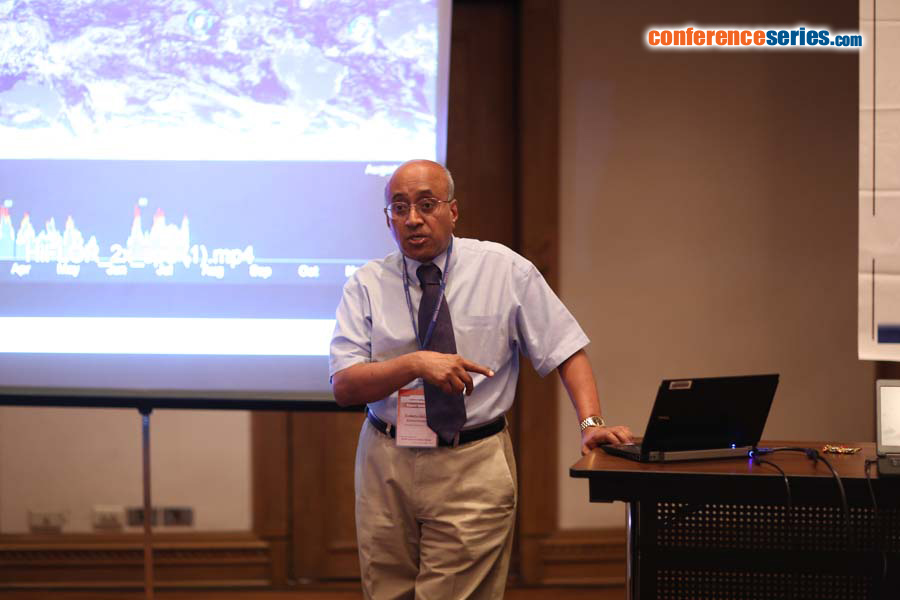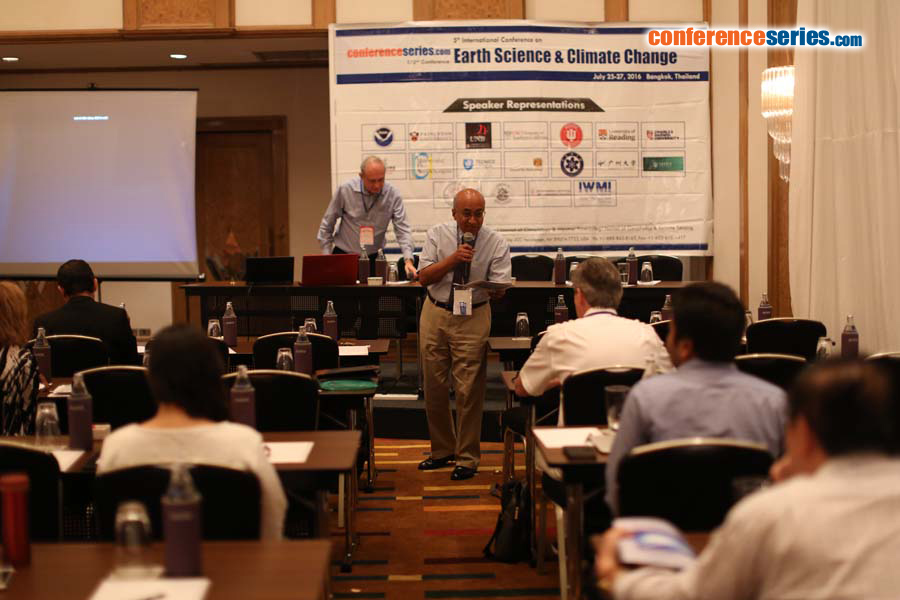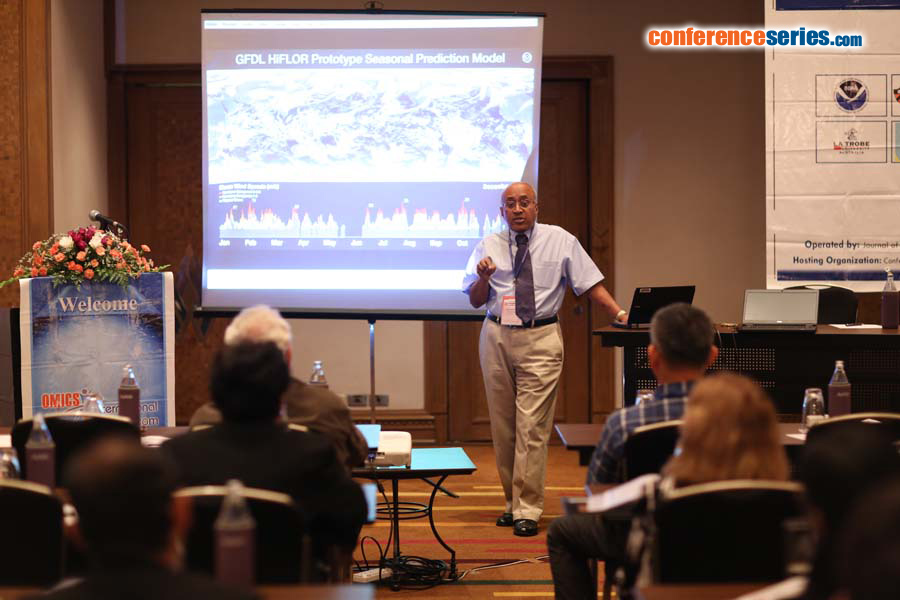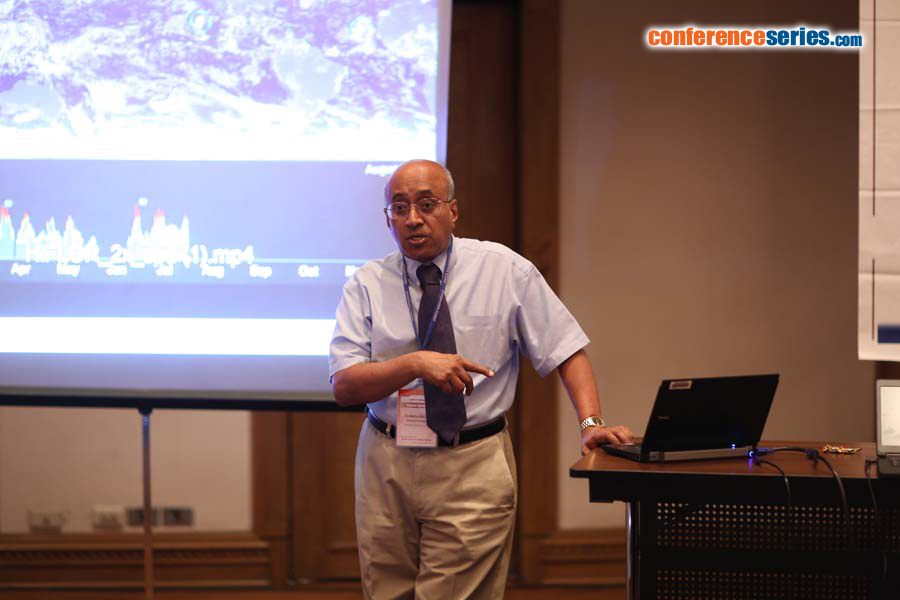
Venkatachalam Ramaswamy
Princeton University, USA
Title: Earth’s climate change in the 20th and 21st Centuries: The phenomenon of global warming and its impacts
Biography
Biography: Venkatachalam Ramaswamy
Abstract
The emissions of greenhouse gases due to human influences has caused perturbations in the Earth system, initiating majorrnchanges in the greenhouse effect and leading to global warming. Other factors such as aerosol emissions and land-usernchange also due to human activity, along with changes in solar radiation and volcanic eruptions causing aerosol increases,rnhave also affected the planetary heat balance. In this presentation, we discuss how each of the natural and anthropogenicrnfactors has contributed to alteration of the Earth system from global to continental to regional scales. The climate variablesrnof particular interest for societal impacts are temperature, precipitation, and weather extremes. For this investigation, we usernstate-of-the-art numerical models of the climate system that were employed in the Fifth Intergovernmental Panel on ClimaternChange Assessment (2013), together with observations drawn from multiple platforms (surface, satellite, aircraft). We analyzernthe key drivers over the 20th Century, the impacts they have generated, and the unresolved issues. We then explore the impactsrnthat are expected in the 21st Century. In the context of both the 20th and 21st Centuries, we discuss the impacts expected due tornglobal warming and the significance of the resulting climate change for extremes in weather, e.g., heat waves, tropical storms,rnsea-level rise, forest fires, droughts, excess rainfall. This brings to the fore the connection between the scientific understandingrnof global warming based on rigor and the manner in which climate change impacts society, including that arising due to thernnonstationary behavior of the changes.




